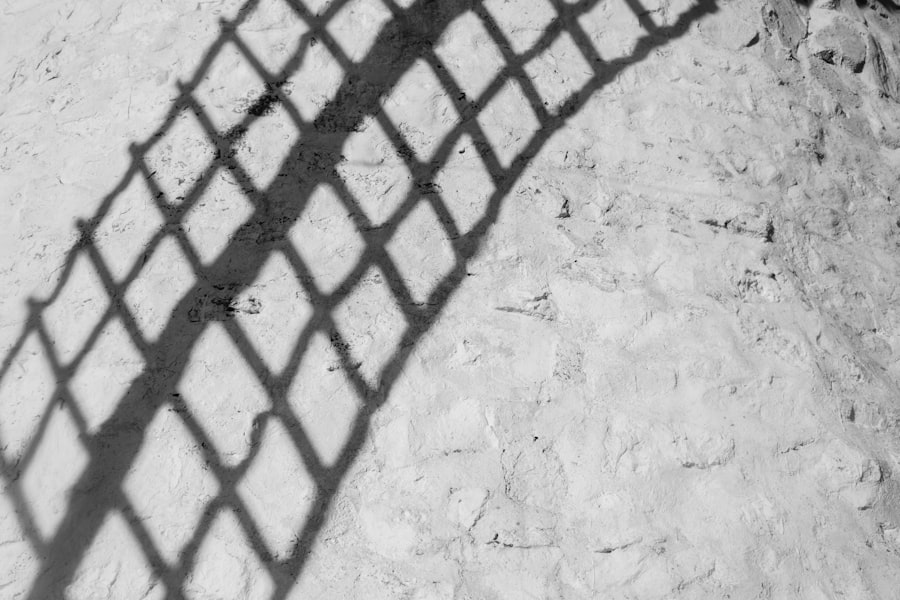Depersonalization Derealization Disorder (DDD) is a complex mental health condition characterized by persistent feelings of detachment from oneself or one’s surroundings. You may find yourself feeling as though you are observing your life from outside your body, or that the world around you seems unreal or distorted. This experience can be disorienting and frightening, often leading to significant distress and impairment in daily functioning.
DDD is not merely a fleeting sensation; it is a chronic condition that can severely impact your quality of life. The disorder often emerges in response to trauma, stress, or anxiety, and it can occur independently or alongside other mental health issues. For many individuals, the experience of DDD can be so profound that it disrupts their sense of identity and reality.
You might feel as if you are living in a dream or that your thoughts and feelings are not your own. Understanding DDD is crucial for recognizing its potential interplay with other mental health disorders, particularly bipolar disorder.
Key Takeaways
- Depersonalization Derealization Disorder (DDD) is a mental health condition characterized by feeling detached from oneself and the surrounding environment.
- There is a strong relationship between DDD and Bipolar Disorder, with individuals with Bipolar Disorder being at a higher risk of experiencing DDD symptoms.
- Symptoms of DDD in Bipolar Disorder may include feeling disconnected from reality, experiencing a sense of unreality, and feeling emotionally numb.
- Diagnosing DDD in Bipolar Disorder involves a thorough evaluation of symptoms and may require the expertise of mental health professionals.
- Causes of DDD in Bipolar Disorder can be multifaceted, including genetic predisposition, trauma, and environmental factors.
The relationship between DDD and Bipolar Disorder
The relationship between DDD and bipolar disorder is intricate and multifaceted. Bipolar disorder is characterized by extreme mood swings, including episodes of mania and depression. If you are living with bipolar disorder, you may also experience episodes of depersonalization or derealization, particularly during periods of heightened emotional distress.
The overlapping symptoms can complicate the clinical picture, making it essential to differentiate between the two conditions for effective treatment. Research suggests that individuals with bipolar disorder may be more susceptible to developing DDD due to the intense emotional fluctuations they experience. During manic or depressive episodes, you might find that your perception of reality becomes distorted, leading to feelings of detachment.
This connection highlights the importance of understanding how these disorders interact, as addressing one may significantly impact the other.
Symptoms of DDD in Bipolar Disorder

When you experience DDD in the context of bipolar disorder, the symptoms can manifest in various ways. You may feel disconnected from your thoughts, emotions, or sense of self, which can be particularly distressing during mood episodes. For instance, during a depressive episode, you might struggle to feel any emotional connection to your surroundings or even to your own body.
This disconnection can exacerbate feelings of hopelessness and despair. Conversely, during manic episodes, you may experience heightened sensations of detachment, leading to an overwhelming sense of euphoria mixed with confusion about your identity and reality. The symptoms of DDD can create a feedback loop that intensifies the mood swings associated with bipolar disorder.
You might find yourself questioning what is real and what is not, further complicating your emotional state and making it challenging to navigate daily life.
Diagnosing DDD in Bipolar Disorder
| Metrics | Data |
|---|---|
| Prevalence of DDD in Bipolar Disorder | Approximately 20-30% of individuals with bipolar disorder also have comorbid DDD |
| Diagnostic Criteria | Diagnosing DDD in bipolar disorder involves assessing symptoms of both conditions and their impact on functioning |
| Challenges in Diagnosis | Overlap of symptoms between DDD and bipolar disorder can make diagnosis challenging |
| Treatment Implications | Diagnosing DDD in bipolar disorder can impact treatment decisions and outcomes |
Diagnosing DDD in individuals with bipolar disorder requires a comprehensive evaluation by a mental health professional. You may undergo a thorough assessment that includes a detailed history of your symptoms, mood episodes, and any traumatic experiences that could have contributed to the development of DDD. It’s essential for the clinician to differentiate between the symptoms of bipolar disorder and those specifically related to DDD.
The diagnostic criteria for DDD include persistent or recurrent experiences of depersonalization and derealization that are not attributable to another medical condition or substance use. If you are experiencing these symptoms alongside the mood fluctuations typical of bipolar disorder, it is crucial to communicate this to your healthcare provider. A proper diagnosis can lead to more effective treatment strategies tailored to address both conditions simultaneously.
Causes of DDD in Bipolar Disorder
The causes of DDD in individuals with bipolar disorder are not entirely understood but are believed to involve a combination of biological, psychological, and environmental factors. You may find that traumatic experiences, such as abuse or significant loss, can trigger episodes of depersonalization or derealization. Additionally, the neurobiological underpinnings of bipolar disorder may predispose you to experience these dissociative symptoms.
Stressful life events can also play a significant role in the onset of DDD. If you are navigating the challenges of bipolar disorder, the emotional turmoil associated with mood swings can create an environment ripe for dissociation. Understanding these potential causes can empower you to seek appropriate interventions and support systems that address both your bipolar disorder and the accompanying symptoms of DDD.
Impact of DDD on Bipolar Disorder

The impact of DDD on bipolar disorder can be profound and multifaceted. You may find that the feelings of detachment associated with DDD exacerbate the emotional instability characteristic of bipolar disorder. This disconnection can lead to increased difficulty in managing relationships, work responsibilities, and daily activities.
The sense of unreality may make it challenging for you to engage fully with life, leading to isolation and further exacerbation of depressive symptoms. Moreover, the presence of DDD can complicate treatment efforts for bipolar disorder. If you are experiencing dissociative symptoms, it may be harder for you to articulate your feelings and experiences during therapy sessions or medication management appointments.
This communication barrier can hinder progress in managing both conditions effectively. Recognizing the impact of DDD on your overall mental health is crucial for developing a comprehensive treatment plan.
Treatment options for DDD in Bipolar Disorder
Treatment options for DDD in individuals with bipolar disorder typically involve a combination of medication and psychotherapy. If you are experiencing significant mood swings associated with bipolar disorder, mood stabilizers or antipsychotic medications may be prescribed to help regulate your emotional state. These medications can also alleviate some symptoms of DDD by stabilizing your mood and reducing anxiety levels.
Cognitive-behavioral therapy (CBT) is often effective in helping you understand and manage your symptoms. Through therapy, you can learn coping strategies to address feelings of detachment and develop a greater awareness of your thoughts and emotions.
Additionally, trauma-focused therapies may be beneficial if past experiences contribute to your dissociative symptoms.
Coping strategies for individuals with DDD and Bipolar Disorder
Coping with DDD while managing bipolar disorder requires a multifaceted approach tailored to your unique experiences.
Engaging in mindfulness practices such as deep breathing exercises or focusing on sensory experiences—like feeling textures or listening to music—can help you reconnect with reality.
Establishing a routine can also provide structure and stability in your life. You might find that maintaining regular sleep patterns, engaging in physical activity, and setting aside time for self-care activities can help mitigate mood swings and reduce feelings of dissociation. Additionally, connecting with supportive friends or family members who understand your experiences can foster a sense of belonging and reduce feelings of isolation.
The role of therapy in managing DDD in Bipolar Disorder
Therapy plays an essential role in managing both DDD and bipolar disorder effectively. A skilled therapist can help you explore the underlying issues contributing to your dissociative symptoms while also addressing the mood fluctuations associated with bipolar disorder. Through therapeutic interventions, you can gain insight into how these two conditions interact and develop strategies for coping with their challenges.
In therapy sessions, you may work on building emotional regulation skills that empower you to navigate intense feelings without resorting to dissociation as a coping mechanism. Additionally, exploring past traumas in a safe environment can facilitate healing and reduce the likelihood of future dissociative episodes. The therapeutic relationship itself can provide a sense of safety and support as you work through these complex issues.
The importance of self-care for individuals with DDD and Bipolar Disorder
Self-care is crucial for anyone managing mental health conditions, but it becomes even more vital when dealing with both DDD and bipolar disorder. Prioritizing self-care allows you to nurture your physical, emotional, and mental well-being amidst the challenges posed by these disorders. You might consider incorporating activities that promote relaxation and joy into your daily routine—whether through exercise, creative pursuits, or spending time in nature.
Establishing healthy boundaries is another essential aspect of self-care. You may need to recognize when certain situations or relationships contribute to stress or exacerbate your symptoms. By setting limits on what you take on emotionally or physically, you create space for healing and self-reflection.
Remember that self-care is not selfish; it is an essential component of managing your overall mental health.
Supporting a loved one with DDD and Bipolar Disorder
Supporting a loved one who is navigating both DDD and bipolar disorder requires patience, understanding, and compassion. It’s important to educate yourself about both conditions so that you can better empathize with their experiences. When they express feelings of detachment or confusion about reality, validating their feelings without judgment can create a safe space for them to share their struggles.
Encouraging open communication is vital; let them know that they can talk about their experiences without fear of stigma or misunderstanding. You might also offer practical support by helping them establish routines or accompanying them to therapy sessions if they feel comfortable with it. Ultimately, being a consistent source of support can make a significant difference in their journey toward managing both DDD and bipolar disorder effectively.
Depersonalization-derealization disorder and bipolar disorder are both complex mental health conditions that can significantly impact an individual’s perception of reality and emotional stability. While depersonalization-derealization disorder primarily involves feelings of detachment from oneself and the surrounding environment, bipolar disorder is characterized by extreme mood swings ranging from manic highs to depressive lows. Understanding the nuances of these disorders is crucial for effective diagnosis and treatment. For more in-depth information on these topics, you can explore a related article on the Unplugged Psych website by visiting this link. This resource provides valuable insights into the symptoms, causes, and treatment options for these mental health conditions.
LEARN MORE About Unmasking the Mysteries Behind Depersonalization and Derealization
FAQs
What is depersonalization derealization disorder (DDD)?
Depersonalization derealization disorder (DDD) is a mental health condition characterized by a persistent and distressing feeling of being disconnected or detached from one’s body (depersonalization) and/or surroundings (derealization).
What are the symptoms of depersonalization derealization disorder?
Symptoms of depersonalization derealization disorder may include feeling like an outside observer of one’s thoughts, feelings, and actions (depersonalization), feeling like the world is unreal or distorted (derealization), emotional numbness, and a sense of detachment from oneself.
What is bipolar disorder?
Bipolar disorder is a mental health condition characterized by extreme mood swings that include emotional highs (mania or hypomania) and lows (depression).
What are the common symptoms of bipolar disorder?
Common symptoms of bipolar disorder include manic episodes (elevated mood, increased energy, and impulsive behavior) and depressive episodes (sadness, hopelessness, and loss of interest in activities).
Is there a link between depersonalization derealization disorder and bipolar disorder?
There is some evidence to suggest that there may be a link between depersonalization derealization disorder and bipolar disorder, as both conditions involve disturbances in perception and mood. However, more research is needed to fully understand the relationship between the two disorders.
How are depersonalization derealization disorder and bipolar disorder treated?
Treatment for depersonalization derealization disorder and bipolar disorder may include a combination of psychotherapy, medication, and lifestyle changes. It is important for individuals with these disorders to work with mental health professionals to develop a personalized treatment plan.




